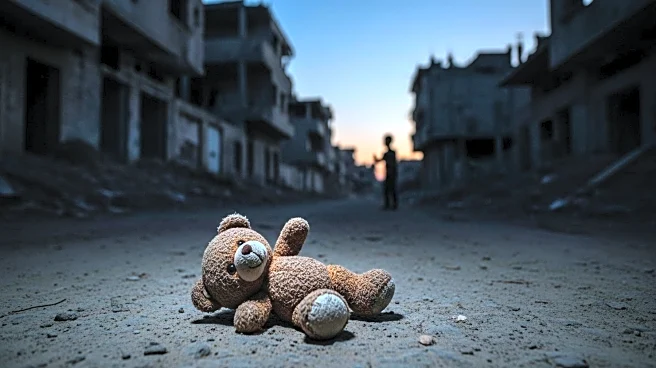What's Happening?
The ongoing conflict in Libya has severely impacted children, who are often caught in the crossfires of war. These children face numerous dangers, including the risk of drowning during sea crossings, malnourishment, dehydration, trafficking, kidnapping, and rape. As they travel through various countries and reach their destinations, they encounter xenophobia and discrimination. The situation calls for urgent attention from international communities to address the humanitarian crisis and protect vulnerable children from further harm.
Why It's Important?
The plight of children affected by the Libyan conflict highlights a significant humanitarian issue that demands global attention. These children are at risk of severe physical and psychological harm, which can have long-term effects on their development and well-being. The international community, including governments and humanitarian organizations, must prioritize efforts to provide safe passage, protection, and support for these children. Addressing these challenges is crucial to prevent further human rights violations and to promote stability and peace in the region.
What's Next?
Members of parliament and international leaders are urged to ask tough questions and take decisive actions to extend operations in Libya aimed at protecting children and addressing the humanitarian crisis. There is a need for comprehensive strategies that include safe migration routes, access to essential services, and measures to combat xenophobia and discrimination. Collaborative efforts between countries and organizations can help mitigate the risks faced by these children and ensure their safety and well-being.
Beyond the Headlines
The situation in Libya underscores the broader ethical and legal responsibilities of the international community to protect vulnerable populations during conflicts. It raises questions about the effectiveness of current policies and the need for more robust frameworks to safeguard human rights. Long-term solutions require addressing the root causes of conflict and promoting peace and reconciliation efforts in Libya and similar regions.








